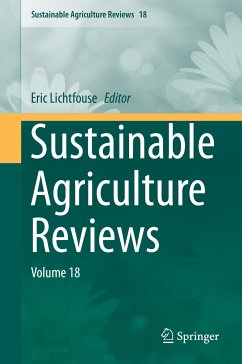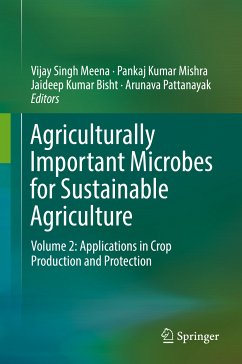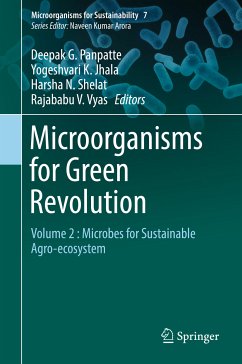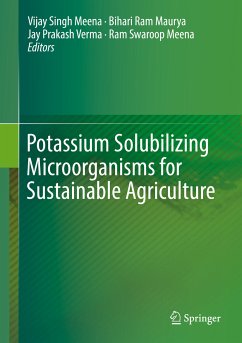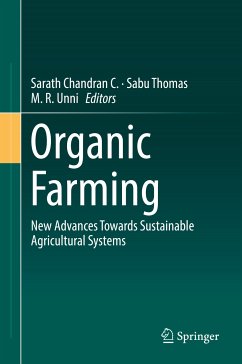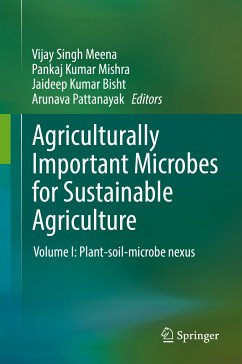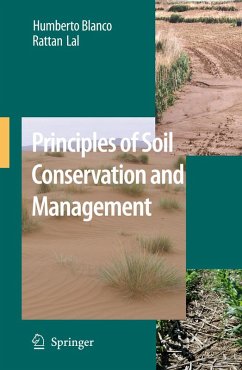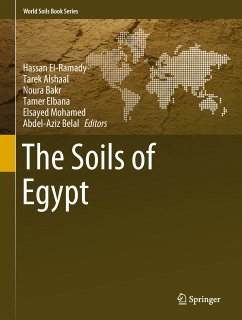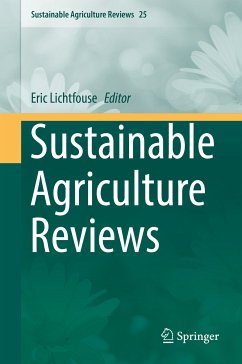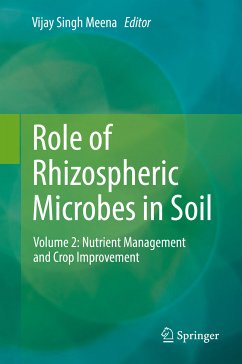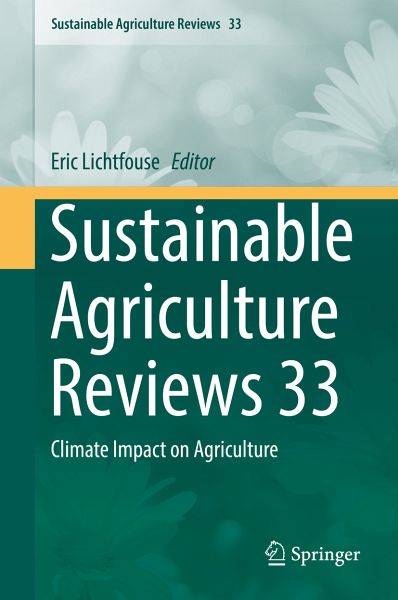
Sustainable Agriculture Reviews 33 (eBook, PDF)
Climate Impact on Agriculture
Redaktion: Lichtfouse, Eric
Versandkostenfrei!
Sofort per Download lieferbar
72,95 €
inkl. MwSt.
Weitere Ausgaben:

PAYBACK Punkte
36 °P sammeln!
This book presents advanced knowledge on the relationships between climate change and agriculture, and various adaptation techniques such as low tillage, salt-adapted beneficial microbes and closed systems. Climate change is unavoidable but adaptation is possible. Climate change and agriculture are interrelated processes, both of which take place on a global scale. Climate change affects agriculture through changes in average temperatures, rainfall and climate extremes; changes in pests and diseases; changes in atmospheric carbon dioxide; changes in the nutritional quality of some foods; and c...
This book presents advanced knowledge on the relationships between climate change and agriculture, and various adaptation techniques such as low tillage, salt-adapted beneficial microbes and closed systems. Climate change is unavoidable but adaptation is possible. Climate change and agriculture are interrelated processes, both of which take place on a global scale. Climate change affects agriculture through changes in average temperatures, rainfall and climate extremes; changes in pests and diseases; changes in atmospheric carbon dioxide; changes in the nutritional quality of some foods; and changes in sea level.
Dieser Download kann aus rechtlichen Gründen nur mit Rechnungsadresse in A, B, BG, CY, CZ, D, DK, EW, E, FIN, F, GR, HR, H, IRL, I, LT, L, LR, M, NL, PL, P, R, S, SLO, SK ausgeliefert werden.



